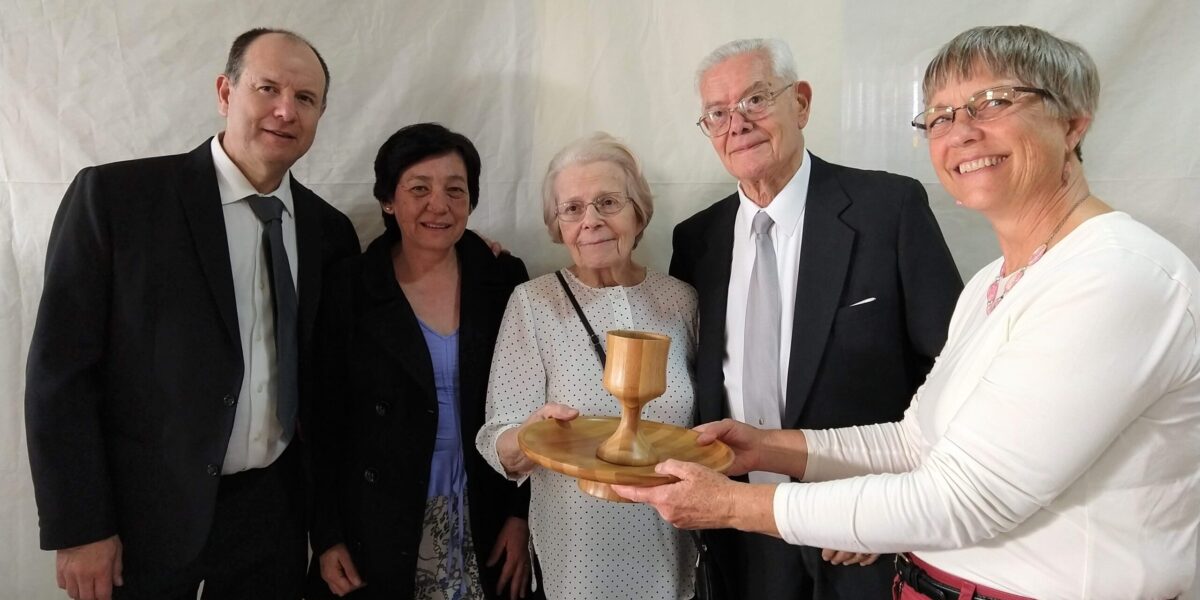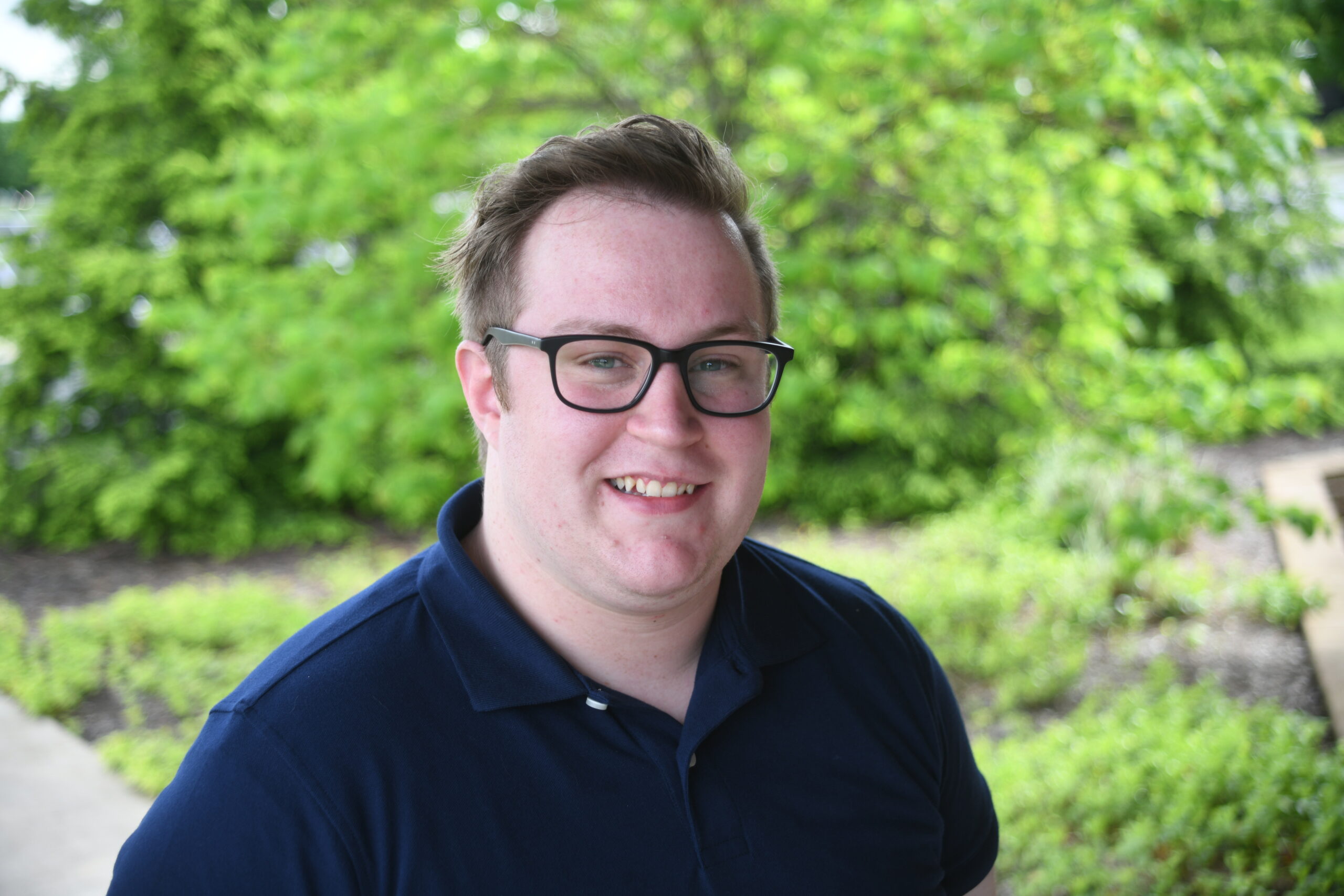A celebration of mission and discipleship occurred Sept. 27-29 in Argentina as the Iglesia Evangélica Menonita Argentina (IEMA) celebrated its centennial anniversary of the first baptisms of the church.
Mennonite Board of Missions (MBM), a predecessor agency of Mennonite Mission Network, sent two families to Argentina in 1917: Mae and Tobias (T. K.) Hershey and their two children, Beatrice and Lester; and Emma and Joseph (J. W.) Shank and their children, Elsa and Robert. They were the first Mennonites sent to South America as mission workers.
Family of God grows over 100 years
During the next 100 years, the church spread across Argentina. Delbert Erb worked in Argentina with MBM and has "retired" to Choele Choel with his wife, Frieda. They both continue to serve with the Argentinian church in many ways. At the centennial celebration, Erb described the history of the Argentina Mennonite Church in three stages.
From 1919-1954, a council of missionaries made decisions for the direction of the church. The second stage, 1954-1989, was an intentional process of dissolving that council of missionaries to form a directive board. The board included some North American mission workers, but it was an Argentine entity.
According to Erb, the responsibility for the extension of the churches in Argentina was placed in Argentine hands. Additionally, North American missionaries would no longer be sent to start new churches, though they did continue to come to Argentina and support the churches in other ways.
Linda Shelly, director for Latin America at Mennonite Mission Network, recalled that this stage brought growing pains in the church as the transition from receiving financial support from North America to developing self-supporting congregations and leaders was difficult. Some of the early churches did not continue.
This led to the third stage, as the Argentine church, IEMA, developed its own mission programs like Visión Evangelística y Misionera de la Región Central (VEMCE, formerly known as VEMZO). VEMCE emerged in the historic region of the IEMA with a vision to restart churches that hadn’t survived the difficulties of the second stage, as well as reach out to other neighboring communities.
Centennial highlights
The centennial celebration started in Pehuajó, where Daniel Schipani, native son and retired AMBS (Anabaptist Mennonite Biblical Seminary) professor, presented his book, Iglesia Evangélica Menonita de Pehuajó, which details the history of the Pehuajó Evangelical Mennonite Church. A public monument was unveiled that commemorated 100 years of preaching Jesus’ message, "I am the way, the truth and the life." John 14:6
Saturday and Sunday, centennial praise and worship continued in nearby Bragado. Daniel Oyanguren, a VEMCE leader, focused on discipleship as critically important and gave the challenge: "What is the example that you are going to give people around you? Be aware that people see how you live and read the word [of God] in your life. … If we want to transform lives, we need to be disciplers." Sunday, Juan Sieber, from the Patagonia Mission Project (PMP) in southern Argentina, encouraged the congregations to be centers of mission, willing to go where the people are, both in their neighborhoods and beyond.
Carrying the legacy forward
The Mission Network delegation included people from churches partnering with mission programs in Argentina. Lisa and Steve Zuercher represented Sonnenberg Mennonite Church in Kidron, Ohio, which partners with indigenous ministry in the Chaco, and Stephen Crane (Ridgeview, Pennsylvania) and Sara Wiegner (Akron, Pennsylvania) represented an Atlantic Coast Conference cluster of churches that also includes Neffsville Mennonite Church and partners with VEMCE.
Pivotal to carrying the message of God’s good news into the next century is the baton-passing of the ministry, said Lisa and Steve Zuercher. The delegation experienced Argentine pastors and mission workers preaching, teaching, planting churches, and running businesses that support missions. The parrilla (grill for meat) is a typical tool of evangelism, especially for men, and the delegation participated in many special meals.
In Villa Mercedes, San Luis, a VEMCE outreach, a block-making business was planted first and then a church. The business provides income for the church planters as well as job creation. VEMCE anticipates partnering with Argentine businesspeople with a heart for mission to move into the next century, combining income-generating work with church planting in cities beyond their current locations. Lisa Zuercher noted that this new work is part of the fruitfulness of those first baptisms 100 years ago.
In the mid-1940s, missionaries felt called to branch out beyond central Argentina to the indigenous people of the Chaco province. While for decades this was a separate ministry of MBM and then Mission Network, since 2011 this ministry has been led by José and Alfonsina Oyanguren, sent by the Mennonite Church of Bragado in partnership with Sonnenberg and Pike Mennonite churches (Elida, Ohio), through Mission Network.
They work together with indigenous leaders supporting the use of the Toba Qom language through Bible ministries in the churches and at the Centro Educativo Saỹaten (Qom Knowledge Educational Center) which hosts a recording studio and FM radio station, as well as multiple educational opportunities. Those opportunities include the Castelli Bible Institute and a program for high school completion. After graduating, students can continue their education to become bilingual teachers in a program that Oyangurens also support.
German Diaz, a Toba Qom leader who works closely with Alfonsina and José explained, ¨ We continue to talk with students about studying and then coming back to participate with and for their people. We are trying to help them understand their history so their studies will help their people."
Steve Zuercher said his perception of the centennial celebration included a sense that the various parts of the Argentine church are ready to move into a future that will, no doubt, hold as many challenges as the past.
"The message I absorbed from the celebrations was, ‘Let’s go forward another 100 years.’ Even as the IEMA was celebrating the past, what I was hearing was, ‘Let’s not be lethargic and rest on our laurels. There is more work to do!’"
These themes of challenging the church rang true for members that attended. Sara Buhlmann, a retired gynecologist and current church planter with VEMCE, said, "The challenge for the next century is the same, to carry the message ‘to every creature.’"
Laurie Oswald Robinson, editor for Mennonite Mission Network, contributed to this report.








